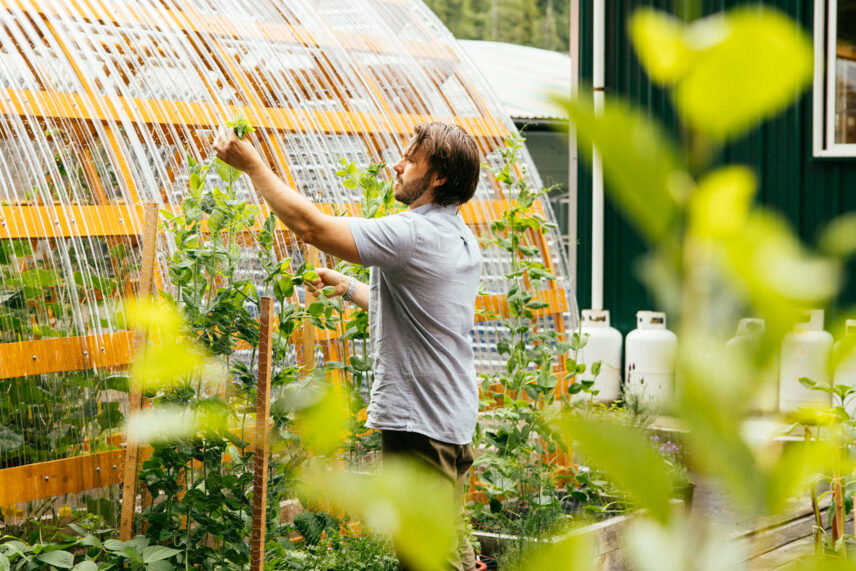Where Do we Get our PRoduce?
In a world where food is often shipped thousands of miles before it reaches our plates, it’s easy to forget the importance of eating local and farm to table values.
At Nimmo Bay, we believe there’s something truly special about knowing where your food comes from—and who grows it. That’s why we work closely with a network of dedicated farmers, foragers, and producers across Vancouver Island and the Lower Mainland. Their passion for sustainable, small-scale farming brings bold flavours, environmental care, and deep community connections to every plate we serve at our restaurant, Little River.
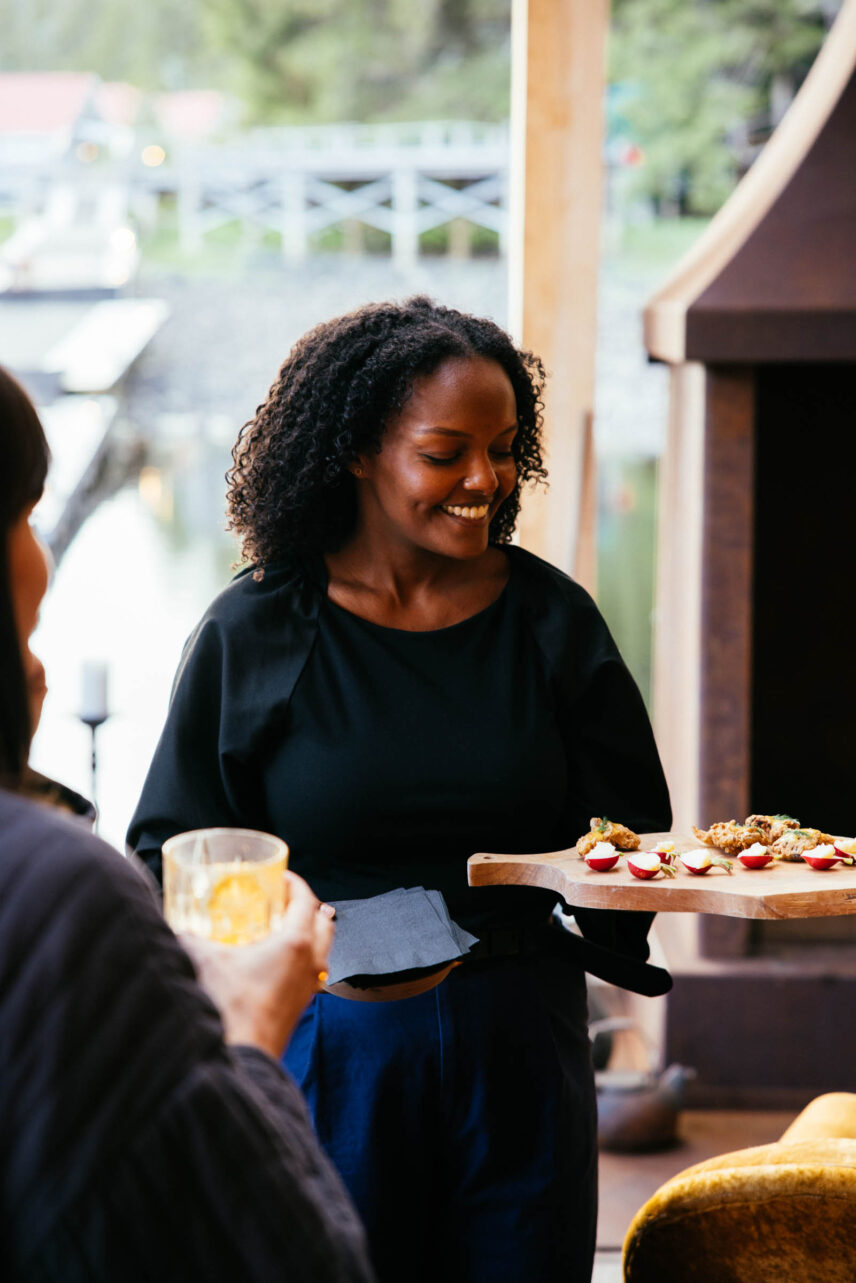
This month, we’re sharing their stories to celebrate the people behind the food—and the land that makes it all possible.
Fungi from Mushroom Hut
Tara Hill and Darby Perkovich are the founders of Mushroom Hut. They grow and distribute culinary mushrooms, dried products, and medicinal extracts from their farm in Campbell River, British Columbia.
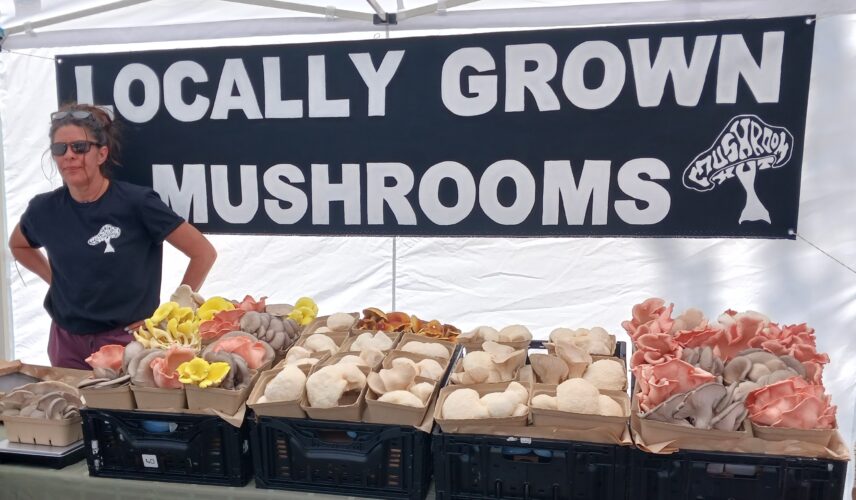
20220619_100707
They started growing mushroom in 2013 to support their own family and friends. What began as a “backyard” food source, became a hobby, and then an obsession. After 5 years, they made the decision to expand the operation and start their own business.
What they Love most?
“Our hope was that others could have the opportunity to enjoy these nutritious, protein-rich, delicious foods… Our mission is to cultivate fresh and exotic mushrooms, focusing on producing quality products for all. We care that our customers are receiving exceptional value in their food, and we hope that everyone enjoys the amazing health benefits and natural flavours of our beautiful mushrooms for many years to come.”
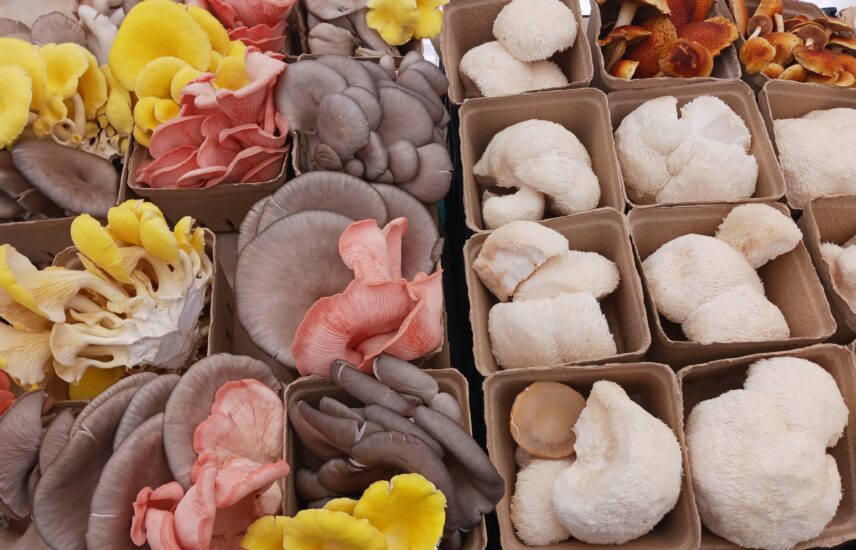
ORganic from Pattison Farms
Pattison Farms is a Certified Organic farm that has been in operation for over 30 years. Everything they grow on their farm in Black Creek, Vancouver Island, starts from a seed. It’s all hand-planted and hand-harvested. They supply Nimmo with a wide variety of direct farm to table fresh fruits and vegetables. From bright greens and earthy beets to sweet apples, pears, and plums, their bounty is plentiful.
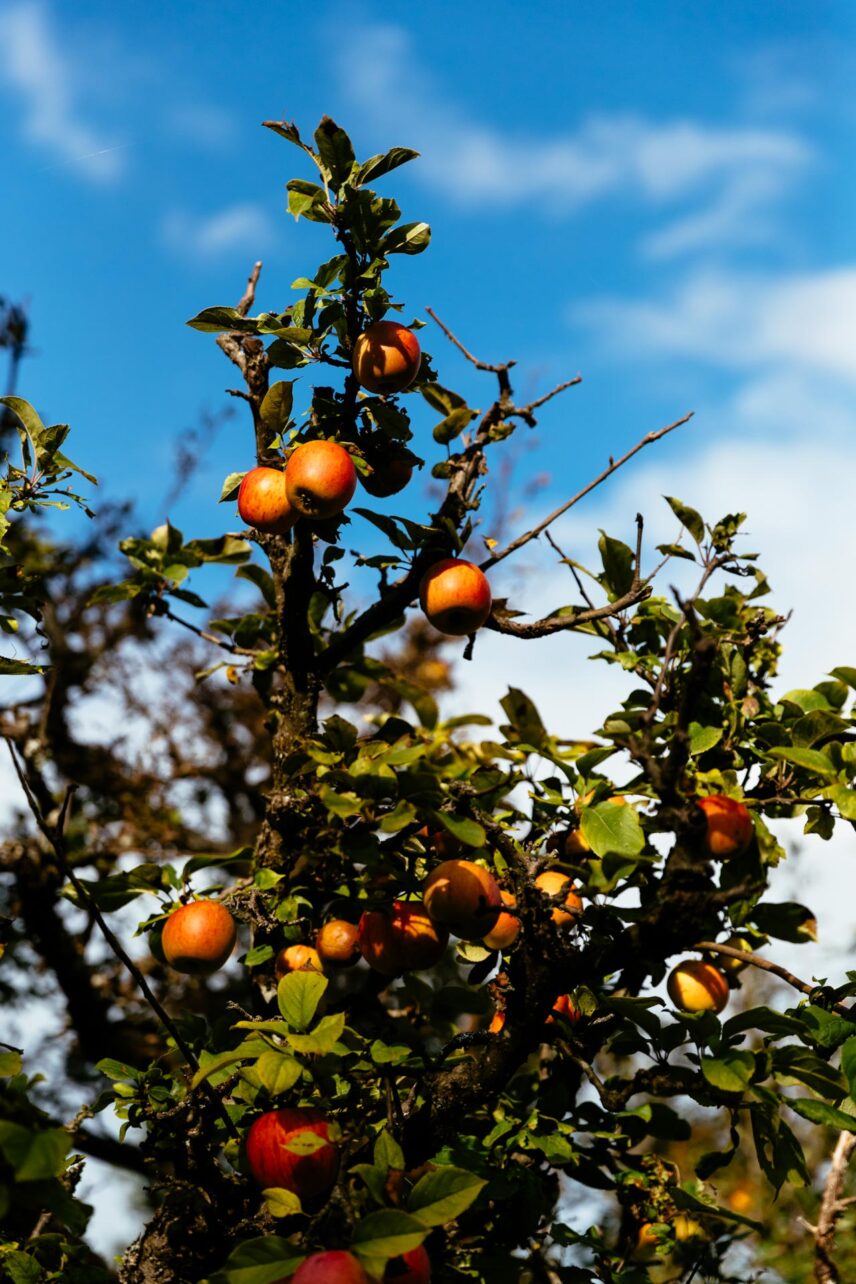
What Should People know about farming?
When asked what they want everyone to understand about farming, it’s all about time and effort. Each crop involves detailed planning, the time to seed the soil, the watering schedule, pruning the plants, transplanting, harvesting at the right time, packing the products, and finally, carefully shipping out the produce. The care that goes into every single part of the process is immense, and they’re constantly up against the variables that nature throws at them.
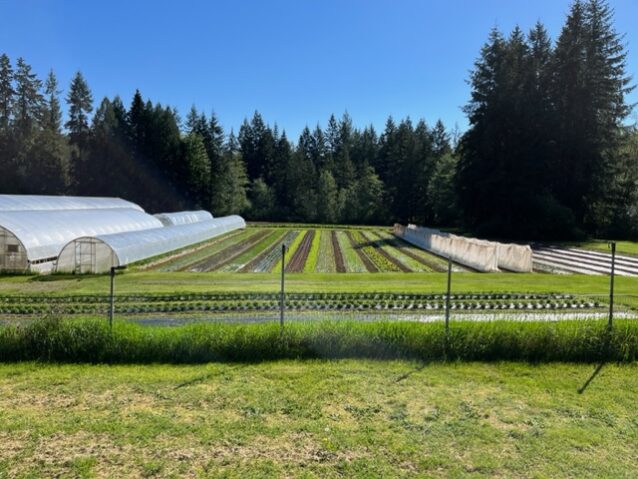
What do you love most?
But the hard work is worth it, when the end product sprouts from the ground and they get to see the enjoyment from people eating what they’ve grown. They also love the fresh air and exercise that comes with farming. Getting outside with their team is a highlight. At the end of the day, it’s a group effort, and the people they work with are so important. The Pattison Farms team is one-of-a-kind, and they wouldn’t trade them for the world. At Nimmo Bay, we understand the importance of a team that feels like family.
Foraging with Alex McNaughton
Alex McNaughton is a wild food forager, organic farmer, and educator. He connected with Nimmo a few years back and came up to forage around the resort. It was an instant fit and our working relationship was set in stone.
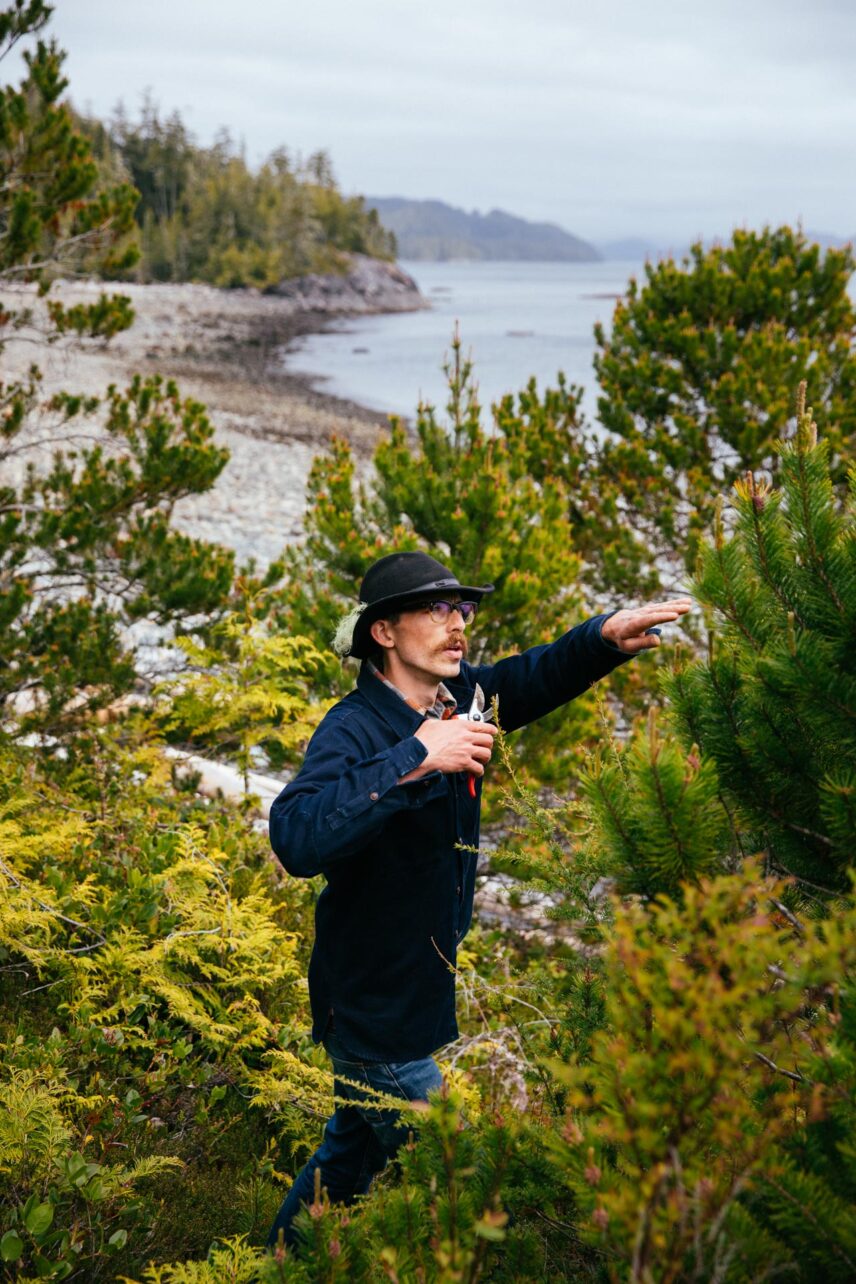
On their property in Powell River, they grow a range of vegetables, berries, and tree fruits for Nimmo. They also send us a bountiful selection of seasonally wild foraged food. Some of their favourite offerings are figs, chanterelles, and tayberries. The property is a regenerative and biodynamic farm that prioritizes taste and nutrient density. A biodynamic farm means that the property is a self-sustaining ecosystem. The farm is treated like an entire living organism.
What do you love most?
The thing they love most about farming and foraging is the taste of the food. “That lettuce butter taste. The taste of wild mushrooms. The taste of an apple variety long forgotten, and the taste of a fresh fig in midsummer.”
What Should People know about farming?
What Alex wants people to know is that farming and harvesting are ancestral and it’s an act of deep love for the land and feeding others. It takes so much time and care to farm and gather. You must learn the cycles of farming and the seasonal patterns of wild crops. The ability to discern the perfect ripeness of a piece of fruit is a learned skill. As is the harvesting technique to not damage a plant. Plus, you have to catch each of those things at the exact perfect moment. Like gathering yellowfoot chanterelles on a mountain slope before the first snow sets in.
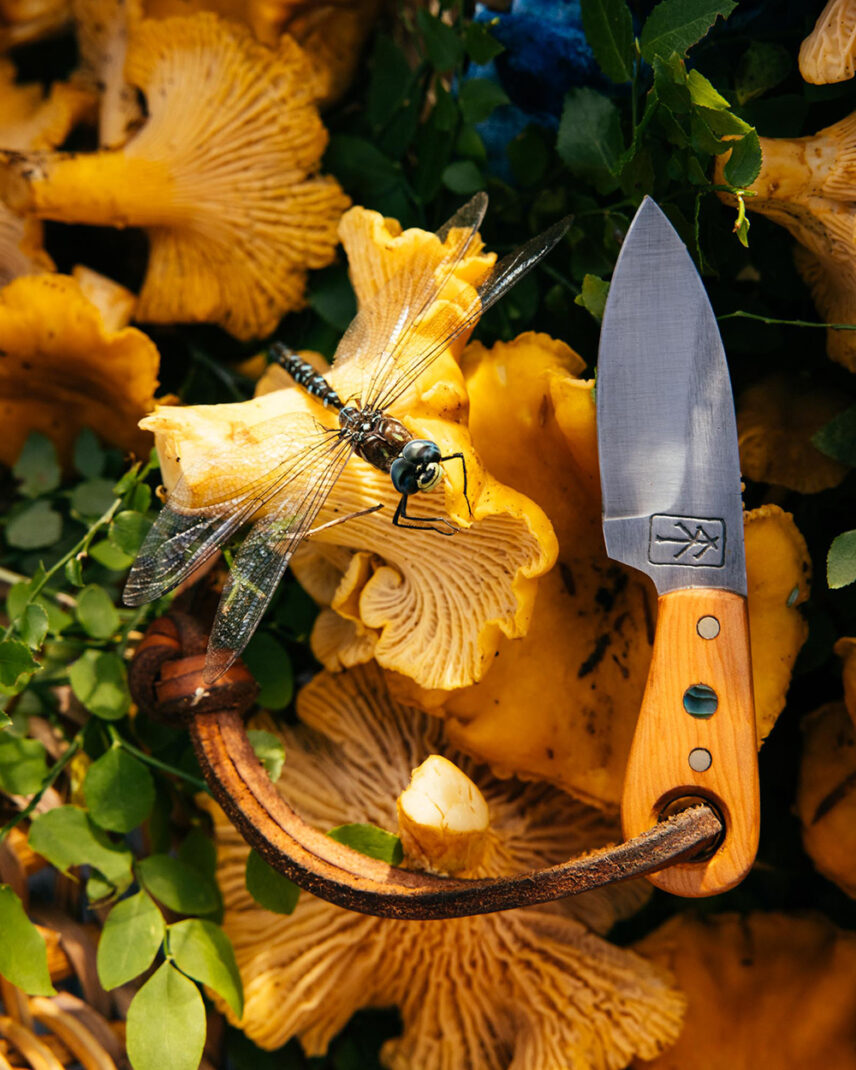
Sweet Produce At Whitaker Farm
Whitaker Farm is a low-till farm, using sustainable, organic methods located in the Comox Valley. Soil health is at the heart of everything they do—it’s one of their core farm goals: to feed ourselves, our community, and our soil for generations to come. As stewards of the land, they believe it’s their responsibility to leave the soil better than it was found. That means nurturing biodiversity, minimizing disturbance, and prioritizing long-term ecological resilience over short-term yield.
At Whitaker Farm, they grow a wide variety of produce—from arugula to zucchini. One of the the things they’re most proud of is the cherry tomatoes that they send to Nimmo. There is nothing quite like the taste of their low-acid, super-sweet Sungolds. They get equally as excited when snap pea season hits, knowing the juicy, crunchy peas are headed straight to our kitchen; true farm to table! You’ll also find their leafy greens, cabbages, broccolini, cauliflower, carrots, beets, kohlrabi, onions, potatoes, and beans making their way onto your plates. They love supplying fresh, vibrant produce that helps our chefs create dishes that truly shine.
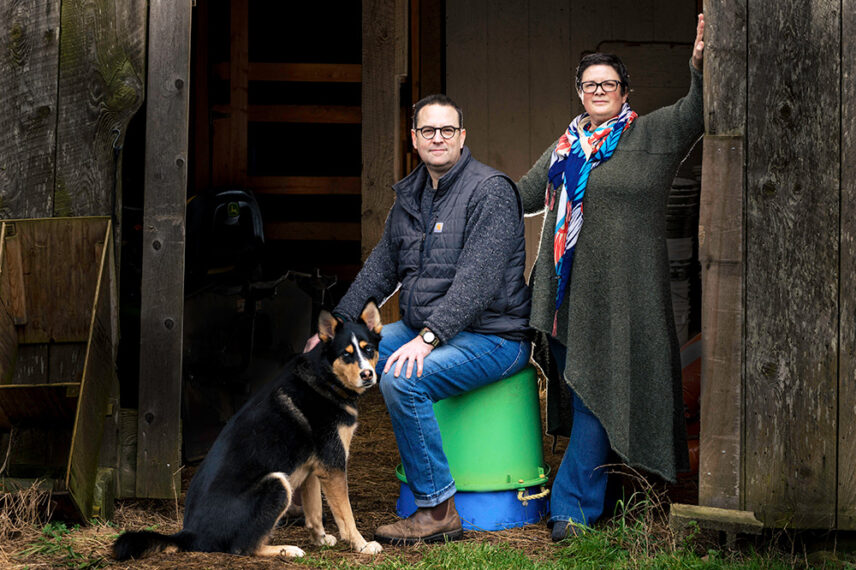
Photo by Karen McKinnon
what should people know about farming?
As farmers, they want people to understand that local farming—especially the kind done by small-scale growers who feed their communities directly—isn’t just a business. For many, it’s a labour of love and a deeply political act.
“We farm this way because we care about the future: about soil health, ecosystems, fair labour, and food that nourishes without exploitation. It’s not always the most cost-efficient model in a capitalist sense, but it’s of immeasurable value if you care about having a food system that is resilient, ethical, and rooted in community. Supporting local farms means choosing regeneration over extraction and relationship over convenience.”
What they love most
What they love about farming is the deep connection to the land and the rhythm it offers—both daily and seasonal. There’s something sacred about the silence of early mornings, when the rest of the world is still and you can hear the wings of a raven cutting through the wind. That’s a gift this job gives. It’s also all about the human connections: talking growing with gardeners who’ve fallen in love with soil, collaborating with chefs to dream up what’s possible on a plate, and hearing from eaters who’ve tasted something that truly sings. It’s so special eating their own veggies when someone else prepares them.
Out Landish ShelLfish
Out Landish Shellfish is a farmer and supplier of clams, mussels, and oysters from the Discovery Islands. They are long time suppliers and friends of Nimmo Bay. They work alongside shellfish farmers growing in intertidal beaches and raft culture. Raft culture means the shellfish are grown suspended on rafts in bodies of water and intertidal are grown close to the bottom and get exposed to the air during low tide.
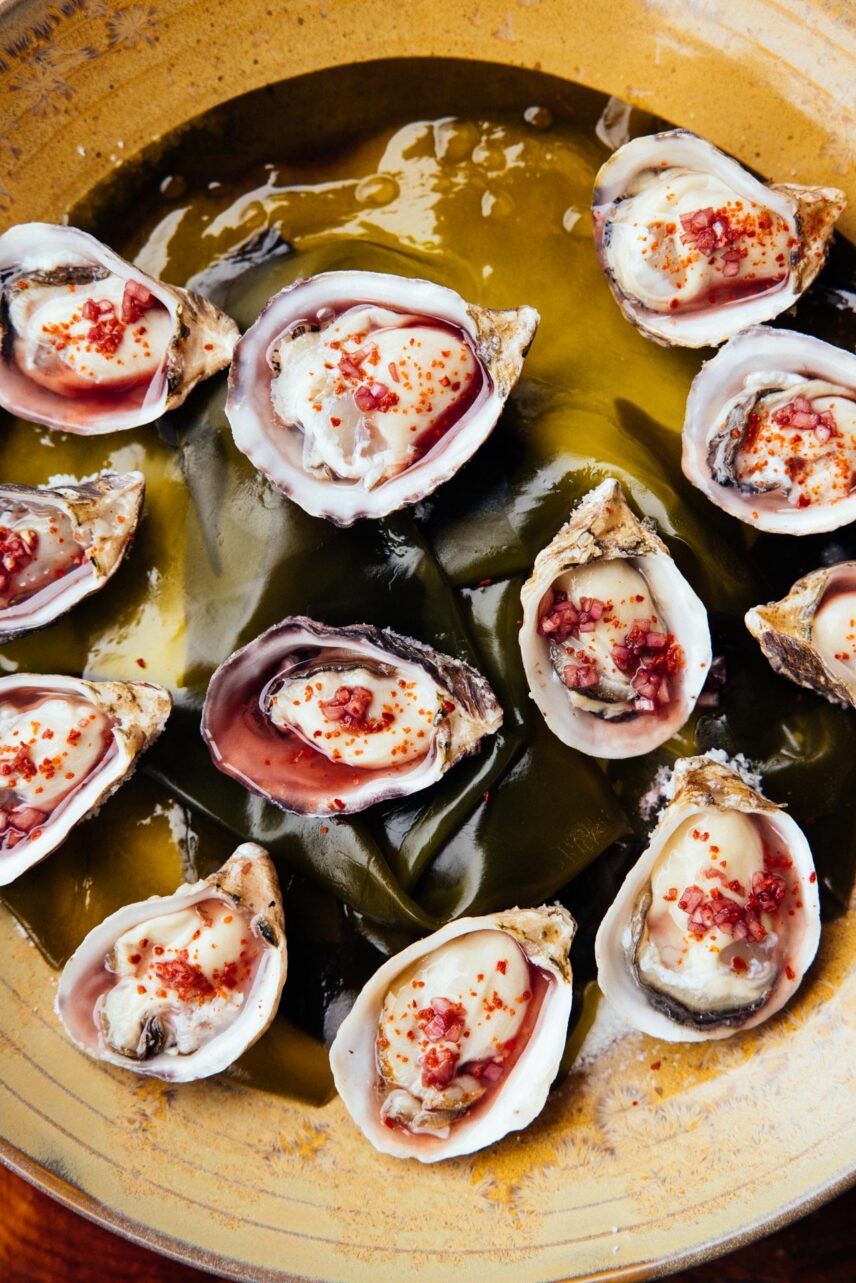
The oysters and clams grown by Out Landish Shellfish are a mixture of wild seed collected from the natural spaces and hatchery seed, which are produced in a controlled environment on Vancouver Island.
How They Farm and WHy they Love it
Sustainability and working in harmony with nature are paramount for their operation. It’s important that the shellfish are grown as unintrusively as possible. In order to do that, the raft culture is perceived as floating reefs by the native fauna in the oceans. Intertidal farming does change the beaches as they are maintaining a higher density of clams and oysters than typical. However, the additional oysters and clams give back by fertilizing the sea grasses.
In terms of what they love most about farming, they mostly just love being out there, it’s all about getting outside and connecting with nature.
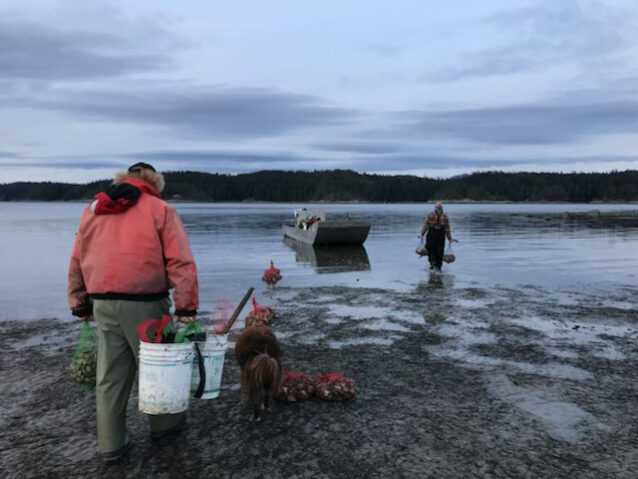
Farm to Table: It’s More than Just food
Across all these stories, a shared truth emerges: the most important part of what these farmers and foragers do isn’t just the food. It’s the deep, intentional connection to the land, to people, and to future generations.
Whether it’s Tara and Darby’s mission to bring nutritious mushrooms to the community, Pattison Farms’ dedication to the process and teamwork, Alex’s reverence for ancestral knowledge and flavour, Whitaker Farm’s belief in regenerative practices, or Out Landish Shellfish’s harmony with the ocean—all of them ground their work in care. Care for the environment, for farm to table, for health, for community, and for the joy that comes from sharing something truly good. Their work isn’t only about growing or harvesting, it’s about stewardship, love, and legacy.
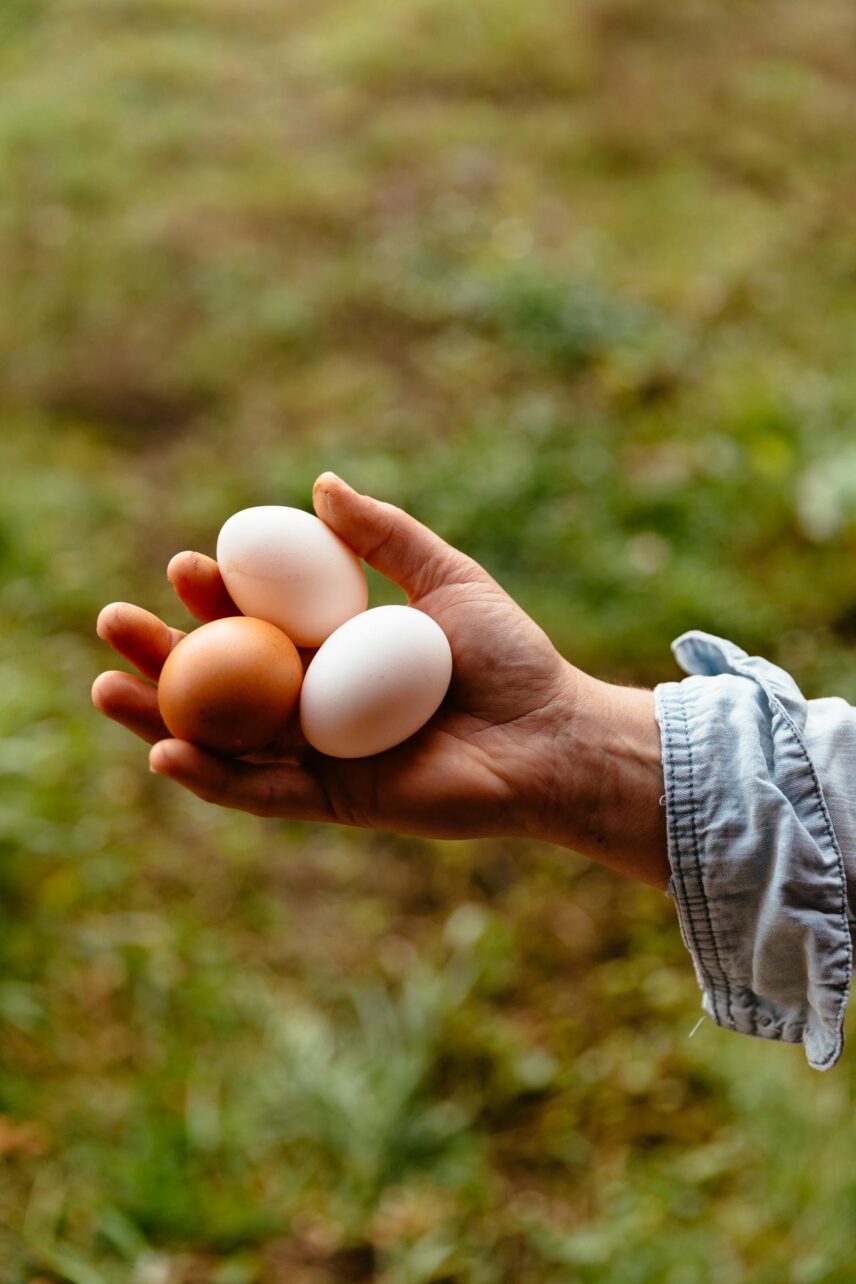
Words by: Alexandra Janes
Photos: Jeremy Koreski
